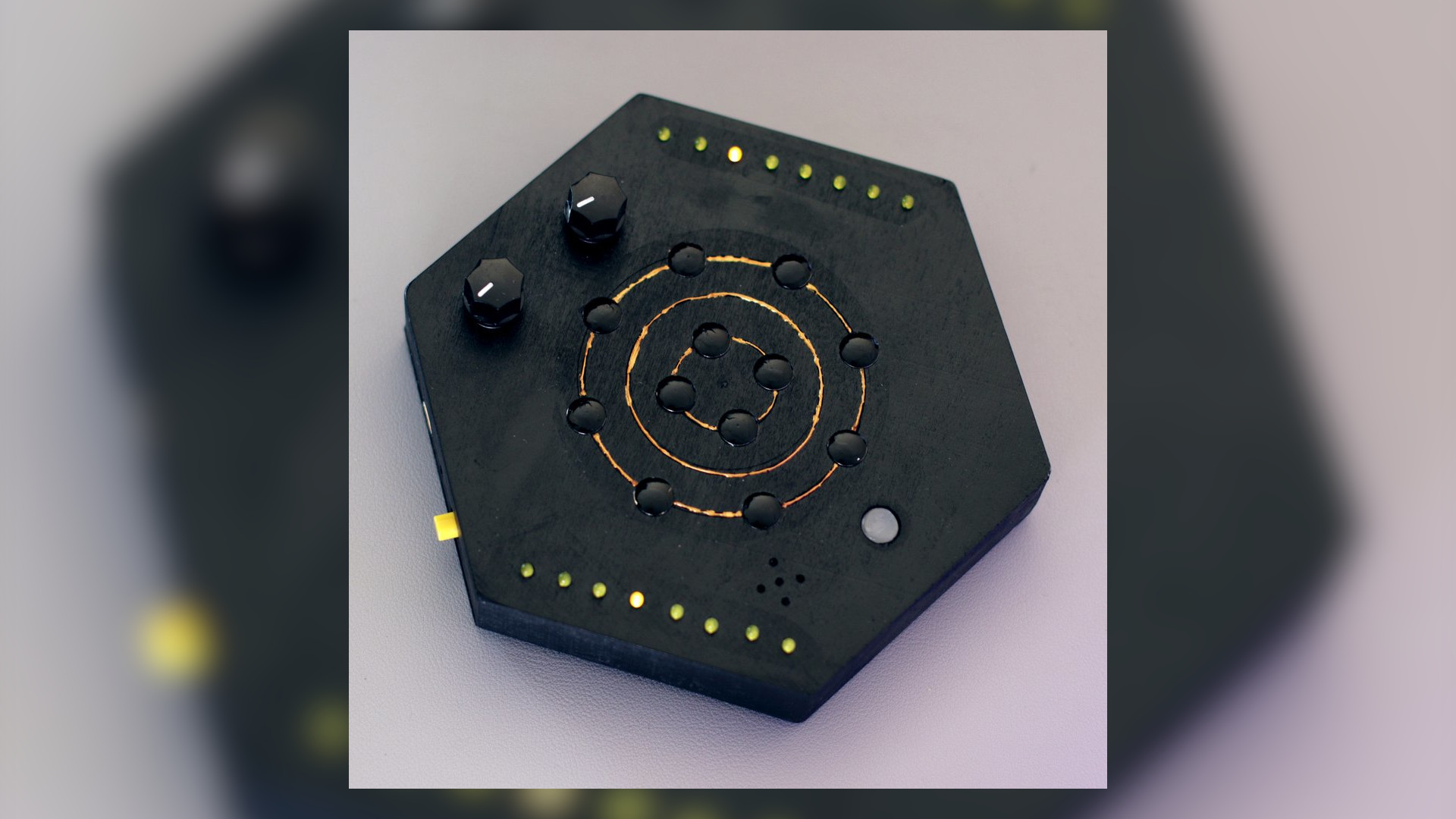
Dodepan: Lo-Fi Raspberry Pi Pico Music Maker
Dodepan is a hexagon shaped lo-fi musical instrument from TuriSc which is powered by our favorite microcontroller, the Raspberry Pi Pico. Using twelve inputs and one sensor, this unassuming instrument creates lo-fi beats to chill to and becomes a MIDI instrument.
The project, Dodepan uses 12 capacitive touch pads, connected to an MPR121 capacitive touch module, as inputs, and TuriSc states that “the lowest note it can produce is C2 (Midi number 36), the highest D8 (Midi number 110), so its chromatic range is 75 notes.” The key can be changed using a knob, along with one of 16 scales on another knob. There can be up to six concurrent voices (polyphonic) at once and each of the inputs are assigned a note based on the current scale and key. What does that mean? Well in short, it can make music from a range of beeps and tones.
Music is all about expression, which is why sometimes performers will use movement to alter the note in play — think guitarists shaking the neck of the guitar to give it a warbling sound. With Dodepan, TuriSc has included an MPU-6050 Inertial Measurement Unit (IMU) to convert the convert the intensity of tapping the unit into velocity data. This data is then used to change the volume of the notes. The IMU also provides accelerometer data which is used to perform pitch bending. An onboard Li-ion battery is fed power via a TP4056 (a linear charger for single cell lithium ion), a part commonly found for pennies on Aliexpress.
The Raspberry Pi Pico is Dodepan’s core. It takes all of the data (inputs, knobs, IMU) and displays the data via LEDs and uses Pulse Width Modulation (PWM) to generate the sound. This is then fed to an analog circuit for further processing before reaching a PAM8403 amplifier and speaker. If you want to jam will on the commute, plug in some headphones and make your music to go.
Dodepan is not just a one-trick pony. It can also be used as a MIDI input, sending data to compatible applications using the standard MIDI format. The code which holds this project together is written in C.
You can build your own version of this awesome project as TuriSc has documented the build, Bill of Materials (BoM) and the code on their GitHub repository.


